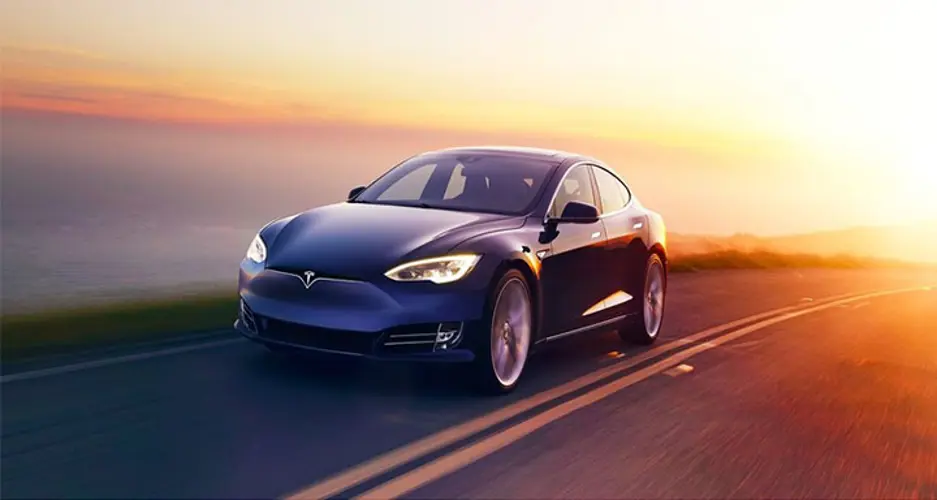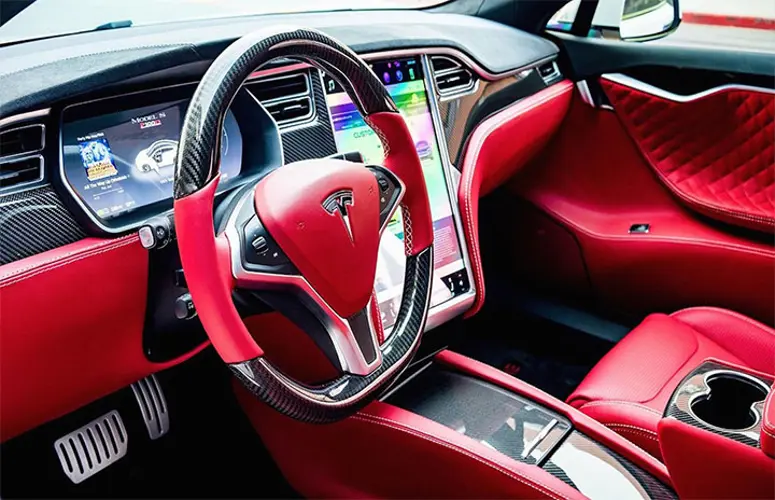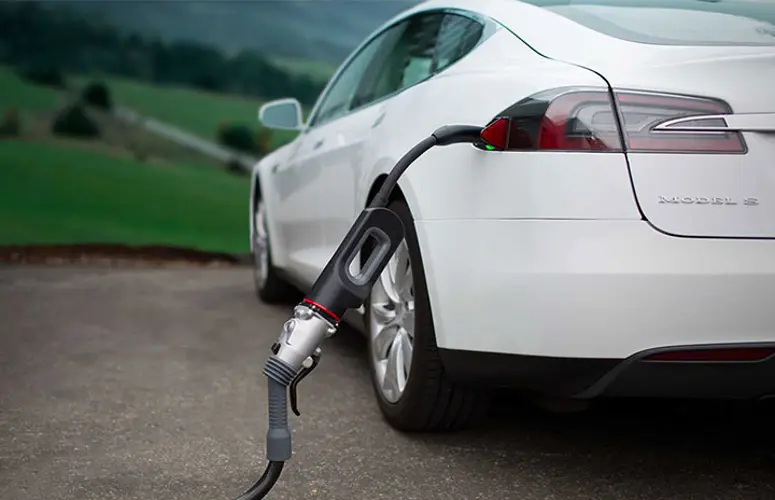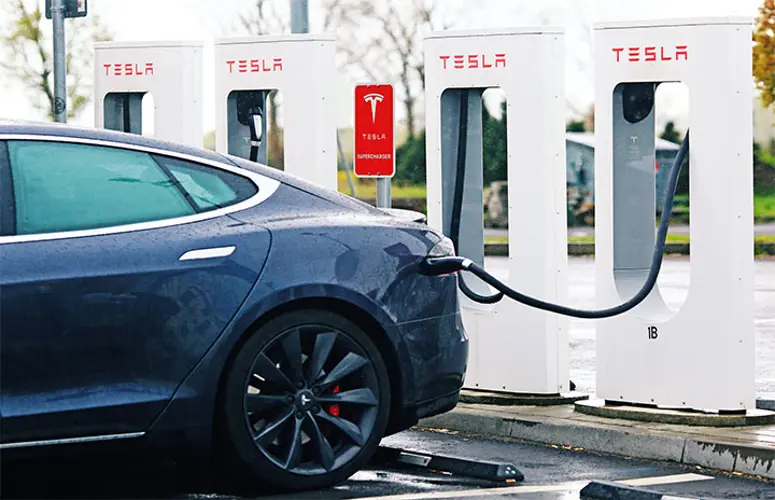Tesla Car Charging

Tesla are being recognised as one of the best in the world when it comes to saving up energy while traveling. Their motto has been: Accelerate the world’s transition to sustainable energy. Emphasised further by their Model S, which is one of the best electric vehicles available. Capable of travelling up to almost 300 miles on a single charge, the Tesla Model S is at the forefront of electric car capabilities.
Tesla model S charge and charge time.
The Model S comes in various types dependent on battery size and the compatibility with the 4 different charging speeds.
If you’re looking at Charging your tesla model S at home with a 3 pin plug, this could take between 20 to 30 hours dependent on battery size and charge levels. However, this is very slow and we would recommend avoiding a 3 pin plug and upgrade to a charging station that offers greater charging speeds, to shorten the time required to charge your vehicle and in the long run save energy and money.

To give you a better example
A home charging station point of 7kW could charge your Tesla model S 60 (60 kWh) in 8-9 hours compared to the 3 pin plug. Of course, as the size of the battery increases the time of charge will be longer as it will require more power to charge the battery to the maximum.
The Model S 90D that comes with the biggest battery (90 kWh) and capable of traveling for almost 300 miles in a single charge requiring only 12 to 13 hours using the same 7kW to charge your vehicle.
It can take as little as 4-5 hours for a full charge based on an increase in kW rates, make sure you discuss your options with a professional so you can get the best deal for your vehicle while saving energy at home.

Tesla model S charging costs
When compared to the price of petrol, you will discover a huge difference in running costs when owning your own electric car and charging station at home rather than a petrol or diesel car.
Charging a Tesla S model at home costs as little as £3 per mile, and overnight electricity costs are calculated at £10 per Kwh. In addition to this means that you would only be paying £6 for a 60 kWh battery and with better energy tariffs a possible, £9 for a 90 kWh, now make the comparison between £9 for almost 300 miles, how much would that be in petrol?

How to charge a Tesla Model S.
The Tesla cars model S can be charged at any electric charging point as long as it has an accessible and reliable power supply. However, it is common for Tesla drivers to prefer to charge their electric vehicle at home on their own dedicated charging point. The home charging stations is where most of the time drivers will be charging their car, as the vehicle will be plugged in and charge during the night.
Other methods include the workplace charging points where employers may choose to charge the fees to cover the cost of electricity or even Tesla Supercharger stations, which can charge your battery up to 80% of your car’s capacity in just 30 minutes.
Tesla Model S connector types and charge rate.
Once you have decided on which ChargePoint you are going to plug your Tesla Model S, you must know the connector type that is being used and the maximum single-phase charge rates to avoid any issues. The Tesla model S commonly use a type 2 connector and they use a single-phase charge rate of up to 22kW.
To know more about the Tesla charging points, how to acquire one for your home, installations, and questions in general about charging your Tesla electric cars or book an appointment for advice on different options for you, please, do not hesitate to contact Home Automate.